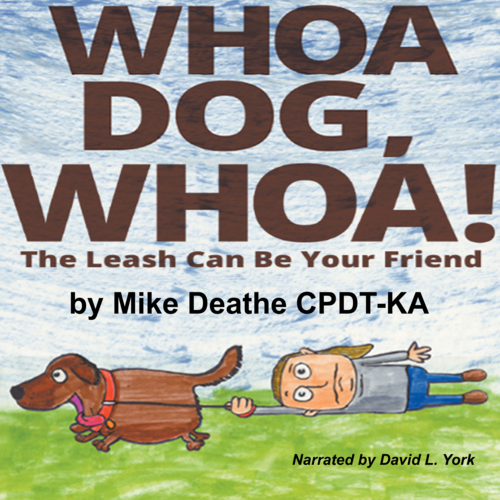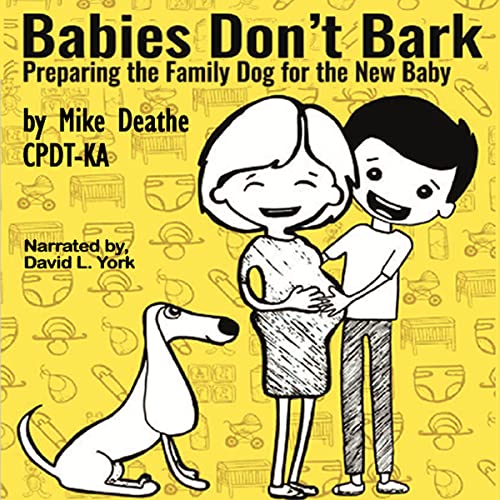Dog Behavior Specialist in Kansas City: Genetics and the Impact on Dog Aggression
Understanding dog behavior can sometimes be challenging, particularly when it comes to aggression. Aggression in dogs can stem from a variety of factors, including environment, upbringing, and socialization, but genetics also plays a crucial role.
While it’s important not to generalize that certain breeds are inherently aggressive, genetics can influence a dog’s predisposition to certain behaviors. In this blog, we’ll explore the relationship between genetics and aggression in dogs and how proper training, such as working with a Dog Behavior Specialist in Kansas City, can help manage and reduce these tendencies.
The Role of Genetics in Dog Aggression
Every dog inherits traits from its ancestors, and just like humans, dogs can inherit behavioral tendencies through their genetic makeup. These genetic factors don’t predetermine a dog’s behavior, but they can influence how likely a dog is to exhibit aggressive tendencies in certain situations. For example, some dog breeds have been historically bred for guarding, hunting, or protection work. These roles may require a more assertive, protective, or reactive temperament.
While this does not mean that all dogs within a particular breed will exhibit aggression, it does mean that certain breeds might be more prone to show aggressive behaviors if they’re triggered by specific situations or not given the proper training.
Common Genetic Influences on Aggression
- Breed-Specific Traits: Certain breeds, such as Rottweilers, German Shepherds, and Doberman Pinschers, were originally bred for protection, security purposes, and even livestock guardians. These dogs may have stronger protective instincts, which can sometimes be mistaken for aggression. On the other hand, breeds like Border Collies and Australian Shepherds, bred for herding, may display nipping behaviors, which can also be interpreted as aggression if not properly managed.
- Inherited Temperaments: Puppies can inherit the temperaments of their parents. For example, a puppy with aggressive or highly reactive parents may inherit some of these tendencies. However, this doesn’t mean the dog will automatically become aggressive. Proper socialization and training are essential to molding a well-adjusted adult dog.
- Predisposition to Fear-Based Aggression: Some dogs have a genetic predisposition to fearfulness, which can lead to fear-based aggression. Dogs that are naturally more anxious or fearful may be more likely to react aggressively when they feel threatened or cornered. This type of aggression can often be managed through careful socialization and training from a young age.

Environmental Factors Matter Too
While genetics can influence a dog’s behavior, environmental factors play an equally important role. A dog’s upbringing, socialization, and training will significantly impact how their genetic tendencies manifest. Even if a dog is genetically predisposed to certain behaviors, early socialization, consistent boundaries, and positive reinforcement training can help prevent aggressive tendencies from developing.
If you’re concerned about aggression in your dog, working with a Kansas City Dog Behavior Specialist can provide valuable insight into your dog’s specific triggers and help you address the issue effectively. Specialists can assess both genetic and environmental factors to create a training plan that targets your dog’s unique needs.
Recognizing Signs of Aggression
Recognizing the early signs of aggression is key to managing and reducing problematic behaviors. Common indicators include:
- Growling or Snarling
- Baring Teeth
- Stiff Posture or Raised Hackles
- Lunging or Snapping
- Biting or Nipping
- Fearful, Anxious, and Reactive Tendencies
Other things to look for are the ideas of fear, anxiety, reactiveness, and aggression, as they are all interconnected, and one tends to lead to the other as the dog pushes further and further down that path. Be on the lookout for yawns, look-aways, seeing the whites of the eye, tucking tail, freezing, and avoiding eye contact.
Understanding these signs allows you to intervene before the behavior escalates. Remember that aggression is often a dog’s way of communicating fear, discomfort, or frustration, and it’s crucial to approach these situations calmly and with a clear plan.
The Importance of Early Socialization
One of the most effective ways to counterbalance any genetic predisposition to aggression is through early and consistent socialization. Puppies that are exposed to a variety of environments, people, and other animals during their formative months are less likely to develop fear-based aggression later in life.
Socialization helps dogs become confident and comfortable in new situations, which reduces the likelihood of fear-based reactions. Even if a dog has an inherent tendency towards protectiveness or wariness of strangers, consistent positive experiences during their early development can help them navigate these situations calmly and without aggression.
Professional Training for Aggression
If you’re dealing with a dog that shows signs of aggression, it’s important to seek help from a professional. Aggression can escalate if not properly addressed, and attempting to manage it without the right knowledge can be dangerous. A Dog Behavior Specialist in Kansas City can evaluate your dog’s behavior, identify triggers, and create a training plan that incorporates both behavior modification and management techniques.
It’s also critical that the vet, trainer, and client are all in this together. Open communication is very important when it comes to a successful training process when dealing with fearful, anxious, reactive, and aggressive dogs.
Genetics Isn’t Destiny
While genetics can influence a dog’s behavior, they don’t determine a dog’s fate. Aggressive tendencies can be managed, and many dogs with genetic predispositions toward certain behaviors can lead happy, well-adjusted lives with the right training and environment. It’s important to remember that even if your dog has some genetic predisposition to aggression, this behavior can often be modified and managed through proper training, socialization, and care.
For more information on how genetics impact dog aggression, be sure to check out this highly recommend course:
“It Must Be Genetic: The Heritability of Aggression”
Led by Jessica Hekman, DVM, PhD
If you notice signs of aggression in your dog, especially if they stem from a breed with protective tendencies or if the behavior seems to be fear-based, seeking the guidance of a Kansas City Dog Behavior Specialist is crucial. With the right support and approach, even dogs with aggressive tendencies can become calm, confident companions.

Looking for a Dog Trainer in Shawnee or Kansas City?
Contact K.I.S.S. Dog Training Today!
K.I.S.S. Dog Training has been a leading dog behavior specialist in Kansas City for over ten years. We take pride in strengthening the relationships between owners and their dogs. We believe it’s essential for humans to understand what their dog needs and the best ways to help them get it. As a leader for aggressive dog training in Kansas City, we will provide the proper steps to help you build the healthiest relationship possible with your furry friend.
Contact us online or give us a call at 913-269-7595 to partner with a trainer. We are a top dog trainer in Shawnee and proudly service neighboring communities like Overland Park, Olathe, and others throughout the Kansas City metro area.
Related Posts
Search Blogs
Most Popular Posts
K.I.S.S. Dog Training proudly serves the Kansas City Metro, Overland Park and Surrounding Areas. 40 miles, 20 miles each way from Shawnee, KS is included for In-Home Sessions... Over that mileage is an additional charge of $1.00 per mile... Call with Questions
Contact Us Today!
K.I.S.S. Dog Training
Shawnee, Kansas
(913) 269-7595







